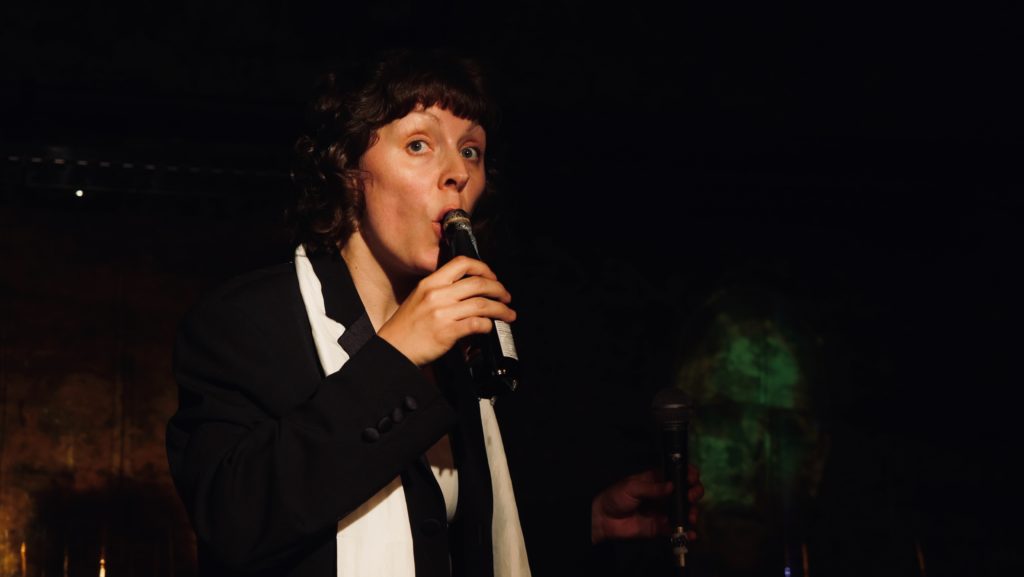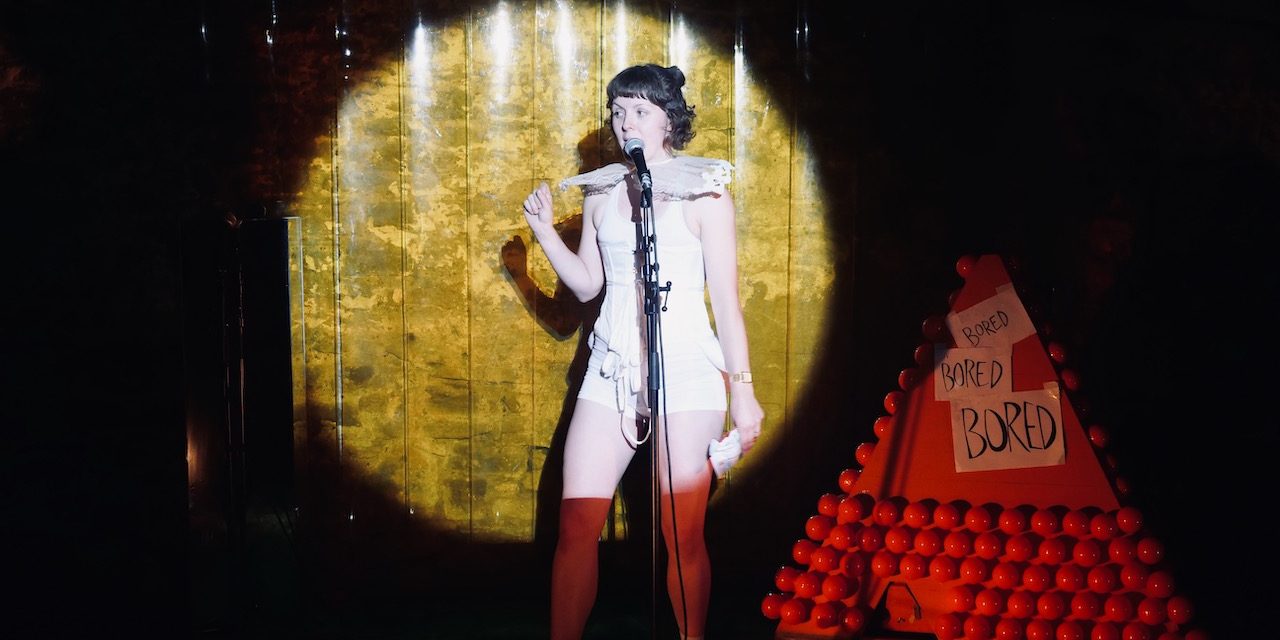
7 – 10 September
Holly Beasley-Garrigan’s clever, witty and sometimes confrontational piece exposes the fault lines of class – where middle-class expectations of entertainment can force working-class people into a kind of human ‘zoo’, forced to display their trauma for money. What can a poor girl do other than work a funding tick-box culture to her advantage? You want a play about poverty, I can do that! Tick! Money! Survival!
Writing about four generations of her family, women who have lived all their lives on the same council estate in south London, with Opal Fruits, Beasley-Garrigan finds herself in a dilemma. How can she reclaim her authentic voice from the conditioning of the theatre world and without framing those dearest to her in some kind of poverty voyeurism?
Finding herself alienated from her roots in her new RADA world, where she discovers there is such a thing as private education for the first time, Beasley-Garrigan is left wondering, “What is all this about? Why is everything so fucked up? Why do I have to fucking solve it?” Beasley-Garrigan is determined to disrupt the oppressive structures at play and hold a mirror up to the audience.
Working the small square acting space in a packed Weston Studio, Beasely-Garrigan’s set takes the form of part stand-up, part performance art installation in which she has uses the four flavours of Opal Fruits as metaphor for her nan, her mum, her sister and her niece.
Greeting the arriving audience in just her underwear, Holly exuded smiley confidence as she bopped along pre-show to some nineties UK garage tracks with their percussive shuffled rhythms and vocal samplings. Stripping herself back both mentally and physically, Holly always kept the audience onside with her clever stagecraft, well-timed movement and her use of minimal props to maximum effect. And there was laugh-out-loud comedy with hilarious references to her brushes with Shakespearean acting and ballet – yes, even a poor girl can do it. But at the heart of it, there was a sense of shift – the ‘opal fruits’ were taking centre stage!
Beasley-Garrigan’s gift is to be funny yet serious at the same time. Working-class stories hold greater irony in the context of this piece, the more they ‘entertain’, the more zoo-like they appear. “You’re going to love this…” she would begin, relating the unfortunate fates of local blokes ‘Keef’ and ‘Mick the Crim’.
But there can be a price to pay for jumping ship. In one passage Beasely-Garrigan finds herself laughing at a school contemporary seemingly stuck in the past, only to find he is laughing just as hard back at her for changing the way she’s been taught how to speak. Is there a middle ground? Beasley-Garrigan doesn’t pretend to know the answers, but her struggles to take the lid off class expectations is an intellectual work-out in which she none-the-less finds bucket loads of irony and humour with which to take us all along.
★★★★☆ Simon Bishop, 9th September, 2022
Photo credit: Jai Bansuri


